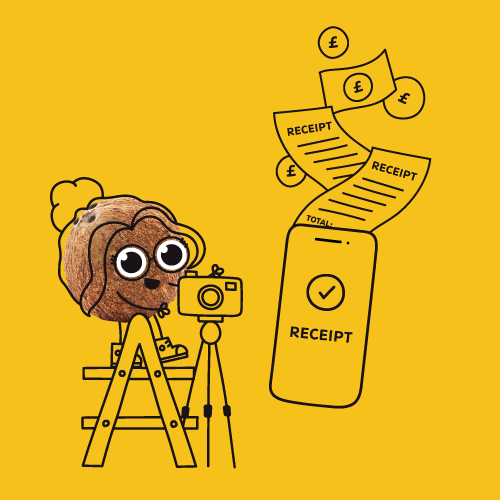As a freelancer, my time is money, and I often spend that time chasing invoices. Getting paid on time is not as simple as it should perhaps be.
“I’m so sorry to ask you – again – but could you please just possibly check whether…”.
You feel awkward – like you could ruin a professional relationship. Excuses on their side range from “I’m going on holiday” to “my bank is having technical issues”. In the meantime, your own cashflow is worryingly patchy.
A survey by Ormsby Street found that almost half – 46% – of freelancers and sole traders regularly experience difficulty in getting paid on time. Just over 1,000 survey respondents were owed an average of £5,431. And even when you, as a freelancer or sole trader, pay people and bills on time, it doesn’t mean you will be treated with the same respect. But before you take to social media in an angry rage, try these tips first.
Be clear on your terms – and theirs – from the start
Make sure you’re clear and confident on the client’s payment process right at the start. Do you need a PO number or a specific detail to put on the invoice? Is there a kill fee? If your point of contact goes on holiday, is there someone else who can help you? Even better, get it all in writing.
If there is something in the contract that seems odd or inconvenient to you, there is nothing wrong with suggesting a reasonable alternative – before you start the work. And whatever you do, avoid asking for payment between Christmas and New Year, when too many invoices mysteriously slip off the table.
Use another email address
If being direct with that boss is a bit scary, or you want to do more to separate your creative and admin-related conversations, you could always set up an alternative email address like accounts@yourname.com, and send your invoice from that address. It sounds professional, and gives you a bit of distance.
Ringfence a certain time each week to follow up
Chasing invoices is an inevitable activity for a freelancer, but it’s best to do this at a specific point in the week rather than ad hoc. Carving out a specific time to focus on your invoicing and payment chasing each week means you can minimise stress and are less likely to forget to follow up on a payment.
“I have to will myself into a certain headspace to deal with these situations – I actually do visualise myself putting on emotional armour before writing those emails,” Anna Codrea-Rado, the owner of FJ&Co, a business to help freelancers, writes in her newsletter. “But I just can't do that every time a payment issue comes up; now when I see an email like that [from a tricky client] come in, it gets filed away to be dealt with during Monday's battle hour.”
Get paid in instalments
If you’re being asked to take on a big project, ask if you can be paid in instalments or invoice for a small amount upfront. That way, by the time the work is complete and you're due to invoice in full, you will hopefully have a better idea of their process and how to navigate it.
Pay someone to chase for you
There are a growing number of credit control companies that take the stress away from the inevitable invoice hustle. They will take a percentage of your fee or charge a flat fee per invoice. Think of it as income insurance.
After all, we pay people to do everything from clean our homes to babysitting our children - surely it’s worth paying to ensure our money comes in on time.
Trade unions can help you
I know fellow freelancers in my field who have contacted the National Union of Journalists for help. If you aren’t a union member, try Citizen’s Advice or ACAS, which offer free and impartial work-related advice. Also, a letter from your accountant or lawyer (or a friend who is an accountant or a lawyer) with an authoritative signature can help put a bit of weight behind your message.
Consider the small claims court
If nothing else has worked, and you’re owed a big chunk of cash, the small claims court could be a (last resort) option. It’s a fine balance between getting what we deserve and burning all of our bridges forever, but if you do have to take it to this level you’ll need all the evidence you can - emails, invoices, etc – and possibly a lawyer. Check out more information here.
Stop apologising for asking for payment
Whatever path you take, remember your rights – and stop feeling guilty for asking to be paid. UK law stipulates that you should be paid within 30-60 days of submitting an invoice (even if the client has their own policy).
Thanks to a little known act called The Late Payment of Commercial Debts (Interest) Act 1998, freelancers can charge interest on late payments. State this Act on your invoice when you send it in. And good luck!










